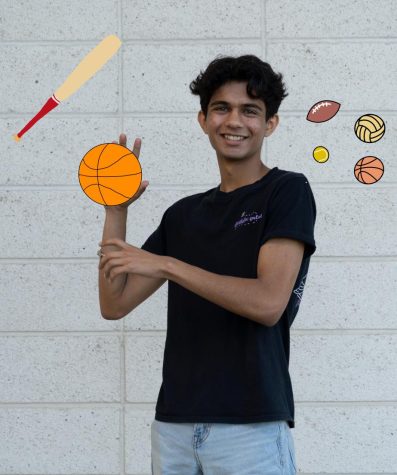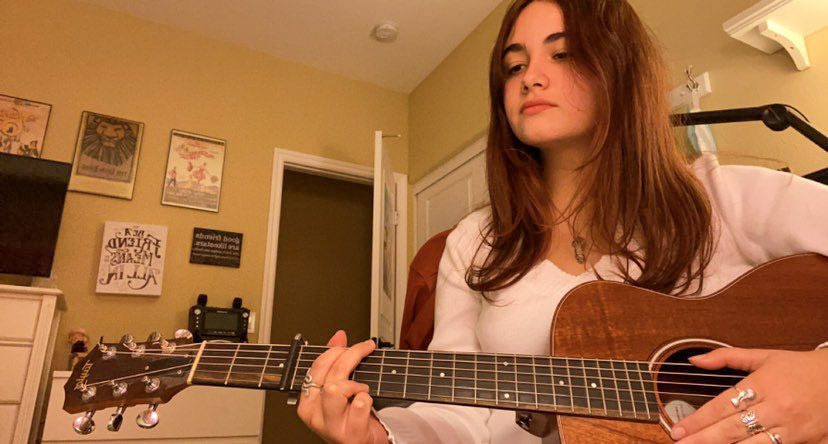Junior Liz De Maria Connects Philosophy and Music through Guitar
Junior Liz De Maria practices playing her acoustic guitar at home after school. De Maria first began her journey with the ukulele, learning her first song, “Riptide” by Vance Joy, in under four days, according to De Maria.
The warm serenades of the guitar and the profound ideologies of philosophy are two subjects that rarely intertwine. However, for junior Liz De Maria, discovering the hidden connections between these two topics helps De Maria better understand herself and the world around her by helping her understand the complexity of human emotions.
De Maria began her musical journey through a similar instrument — the ukulele — at age 12. She soon transitioned to the guitar after a few months, quickly immersing herself in its complexity and depth, according to De Maria.
“[The guitar] allows you to kind of put yourself in the world of self expression, because it just makes such beautiful noise,” De Maria said. “I can’t really explain it with words. It’s become a huge part of my life, because it helps me to kind of just disconnect from all my responsibilities at home and at school and just kind of focus on the music that I’m trying to learn.”
At the same time, De Maria began taking interest in philosophy, prompting her to take a philosophy class the school year. During one class period, the class reflected on the connections between art and philosophy, inspiring her to consider her experiences with the guitar and how it translates to what she was learning in the class, according to De Maria.
“When you’re able to tell a story through music and guitar, it takes your audience to a different reality and away from what’s going on in their life to kind of just focusing more on what they’re listening to,” De Maria said. “That was kind of one of the ideas of the philosophers, when they were defining art, they said it was this idea of taking people to an alternate reality that truly made it art.”
In her philosophy class, De Maria and her classmates were often split up into small groups where they would discuss different ideas and topics that were relevant to the unit that they were studying.
“We have a unit on aesthetics where we talk about different theories on what art is, what the meaning of art is and what the overall purpose of art is,” social studies and philosophy teacher Wind Ralston said. “I think having a better understanding of who you are and what you are helps you express yourself better. Not only in art, but also in writing, speaking and your interpersonal relationships with other people.”
Playing guitar is not only a way for De Maria to explore nuanced philosophical concepts, but also a way to better regulate and understand her own emotions.
“Human emotion is so complex, sometimes you can’t even express it with words,” De Maria said. “I feel like music does a good job in that because it says so much for itself. After I play a sad song or happy song, it’s not that I stopped feeling that emotion; it’s just that it helps me understand it.”
Your donation will support the student journalists of Portola High School. Your contribution will allow us to purchase equipment and cover our annual website hosting costs.

Arnav Chandan is the Sports Editor and Co-Business Manager for his second and final year on the Portola Pilot. Outside of spending hours upon hours in...





Adriana Oliveira | Jan 9, 2023 at 11:32 pm
My girl! ?